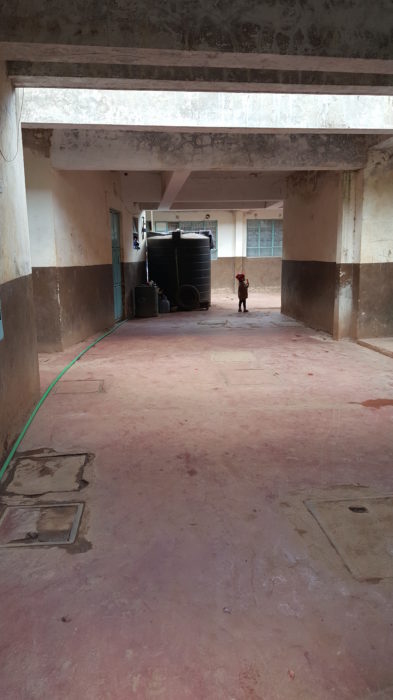The harm of growing up in institutional care

Ever since John Bowlby published his seminal work on attachment theory in 1969, psychologists have been able to demonstrate the short-term and long-term harm that comes to children who are deprived of a stable long-term carer in their early years. The decades of research that followed have documented the primary importance of secure attachments to stable carers (usually parents) in children’s cognitive, social, and emotional development.
A host of negative outcomes of institutional care have been identified: the prevalence of reactive attachment disorders, learning disabilities, and even developmental delays. As a result, the dominant model for the care of children whose biological parents are unavailable (through death, abandonment, incarceration or incapacity) throughout countries with more highly developed economies has been family-based foster care, preferably with relatives (grandparents, aunts/uncles etc.), and preferably leading to permanent adoption.
The importance of attachment
Growing up in an institution can make it very difficult for children to build stable and long-lasting attachments. Children in orphanages frequently grow up with a series of caregivers, many of whom do not spend enough time with each child to form strong attachments. This situation is made significantly worse by the booming business of “orphanage voluntourism” where short-term volunteers eagerly build relationships with children, only to leave suddenly when their volunteer assignments are over. The “revolving door” of volunteers can leave children feeling insecure and eager for affection, and increases the likelihood of attachment disorders.
Each loss experience of an attachment figure leaving, such as with frequent changes of staff in an orphanage, is experienced by the child as another experience of abandonment and grief.
Reactive Attachment Disorder (RAD) is a severe and long-term disturbance in social interactions which arises from a failure to form normal attachments to primary caregivers in early childhood. Abrupt separation from caregivers, frequent change in caregivers, or a lack of responsiveness from caregivers are common causes of RAD, which is seen in high levels among children who are placed into institutional care settings. The “inhibited form” is seen in children who then fail to initiate and/or respond to social interactions with others, and the “disinhibited form” presents as indiscriminate social behaviour – unusual and inappropriate friendliness, familiarity and trust with relative strangers. On the one hand, this disinhibited form makes children extremely vulnerable to exploitation as they are excessively trusting, and on the other hand makes children extremely appealing to visiting volunteers because they are quickly affectionate and seem to readily “bond” with new adults, only to be harmed again by their subsequent departure.
The impact of institutional care on children
There is ample empirical evidence from decades of both psychological and sociological research which underlines the negative developmental impact of institutionalisation not only on children, but also on communities. Growing up in a residential facility significantly affects the way a child’s brain, personality, and skills develop. Children are usually significantly smaller – in height, weight, and head circumference – and tend to grow much later than other children. Orphanages usually cannot provide the necessary stimulation, physical contact, and attention which children need to grow, and on which family-based care is centered. Children who grow up in institutional care in turn often suffer deficits in the relationship skills needed for healthy parenting of their own children.
An influential 2010 study of institutional care reported diminished social, emotional and developmental capacity of orphanage-reared children. The report cites a Russian study which claims that “one in three children who leaves residential care becomes homeless, one in five ends up with a criminal record, and up to one in 10 commits suicide.” For every three months that a child lives in an orphanage, the child loses one month of development.
Children growing up in residential care tend to perform worse in school, and are more likely to become victims of abuse. They experience developmental delays which can persist into adulthood, causing slow language acquisition, and reduced social, emotional and cognitive abilities. Research shows that, on average, children raised in institutional settings have a lower IQ than those living in a family. In addition, there is a high prevalence of psychiatric disorders in institutionalised children.
Children need, for healthy development, the care and nurturing of stable adults with whom they can form a lasting bond of attachment, and most residential institutions are simply not able to provide the kind of stable social and emotional attention which children need to thrive.
Ending institutionalisation
Overwhelming research evidence has led to the virtual disappearance of institutionalised residential care for children in high GDP countries. Instead of institutionalisation, family-based and foster care placements provide a better approach which does not rely on institutions as a long-term solution. Whenever possible a child’s own family, or extended family, can receive support and resources to provide better care and attachment relationships which will extend well into adulthood, and thus strengthen the next generation and the community more broadly. When own-family care is not possible, foster care placement within a host family can potentially provide a stable and secure attachment relationship where a child’s individual needs are better known and met than in an institutional setting.
Along with other organisations, Stahili works to end the unnecessary institutionalisation of children by promoting alternatives to orphanages which are based on families and education, which are sustainable, and which help to give children a future they deserve.
Stahili would like to thank Katherine Fortier BA MASc for her contribution to this post.